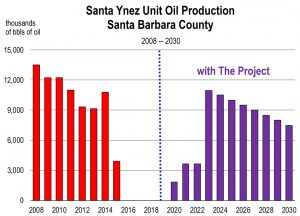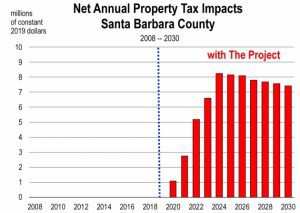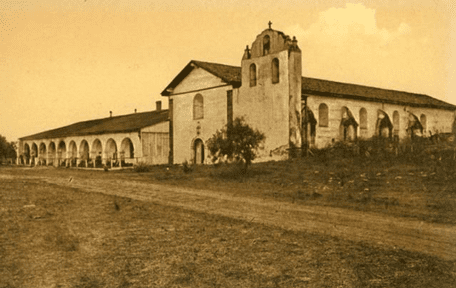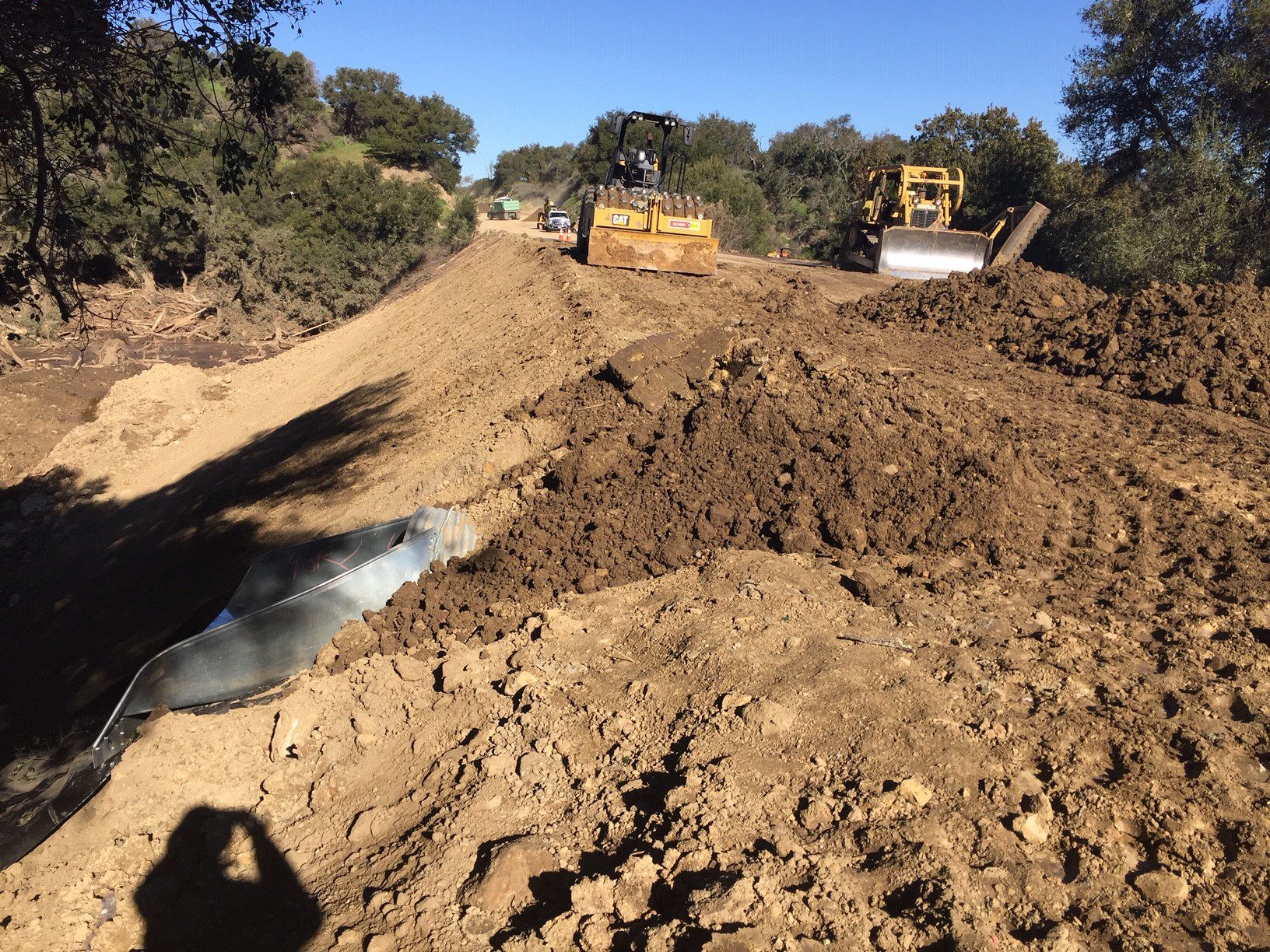By Giana Magnoli
Noozhawk Managing Editor
Six area Chambers of Commerce are pushing for the restart of ExxonMobil’s Santa Ynez Unit offshore oil platforms, which have not operated since the 2015 Refugio Oil Spill and subsequent shutdown of the Plains All-American Pipeline crude-oil pipelines.

A California Economic Forecast study concluded that restarting production of ExxonMobil’s three offshore oil and gas platforms would bring significant employment and tax revenue to Santa Barbara County. The Santa Ynez Unit platforms, and four others, stopped production after the 2015 Refugio Oil Spill and Plains pipeline shutdown.
An economic impact study found that restarting production would bring the county hundreds of jobs and millions of dollars in tax revenues, said Mark Schniepp of the California Economic Forecast.
ExxonMobil has three platforms – Heritage, Harmony and Hondo – that feed into the Las Flores Canyon facility west of Goleta, and the oil was then transported north to refineries using the Plains pipelines. It and other companies stopped production after they were left without a way to transport product to refineries.
Venoco declared bankruptcy two years ago, and the State Lands Commission will decommission Platform Holly and the Ellwood Onshore Facility, while Freeport-McMoRan plans to decommission its three Point Arguello platforms and processing facility.
ExxonMobil has applied to restart production and truck oil to refineries on a temporary basis – for up to seven years or until a pipeline alternative is available. The proposed project would modify Las Flores Canyon facilities, and use up to 70 tanker trucks a day, according to the application.
Plains All-American Pipeline, which was convicted in criminal court for the oil spill, has applied to build a replacement pipeline along a similar route as its existing Lines 901 and 903 through Santa Barbara County. The replacement pipeline project is undergoing environmental review.
Schniepp spoke about the economic impact of a phased restart of ExxonMobil’s three offshore platforms at a recent Goleta Chamber of Commerce Issue and Policy Roundtable.
Having seven offshore oil and gas platforms stop production obviously had a huge economic impact on Santa Barbara County, including the general fund and school district budgets, he said.
Restarting ExxonMobil’s three platforms, plus replacing the Plains pipelines, would bring in an estimated $8 million a year in additional property tax revenues, Schniepp said.
It would result in more direct jobs, including pipeline construction and oil and gas production operations, and indirect employment boosts, such as public sector jobs from more tax revenues, he said.
His economic analysis assumed the Plains pipeline would be replaced and operating by 2023, which is the estimate if the project gets approval in 2021.

An economic impact study concluded that restarting production of ExxonMobil’s oil platforms would bring in about $8 million in property tax revenues a year.
The seven offshore platforms – four of which likely will never operate again – were producing about 13.5 million barrels of oil a year, at a valuation of almost $1.2 billion, Schniepp said.
Using trucking as an interim measure would lead to an efficient transition to full production of the three ExxonMobil platforms, he concluded.
The Santa Barbara County Chamber Coalition that supports the ExxonMobil restart project and commissioned the economic impact study, includes the Santa Maria Valley Chamber of Commerce, the Lompoc Chamber of Commerce, the Buellton Chamber of Commerce, the Solvang Chamber of Commerce, the Goleta Chamber of Commerce, and the Chamber of the Santa Barbara Region.
Anti-oil activists packed recent environmental public hearings on the trucking project, and the Goleta City Council has passed a resolution opposing the application.
Santa Maria’s City Council passed a resolution supporting the project, Councilwoman Etta Waterfield said at Thursday’s event.
“They’re here to improve the quality of life for everyone,” Waterfield said of ExxonMobil.
Kathy Vreeland of the Buellton Chamber of Commerce said residents’ jobs were moved all over the world when ExxonMobil stopped its local production, which is difficult for their families left behind.
Noozhawk managing editor Giana Magnoli can be reached at gmagnoli@noozhawk.com






